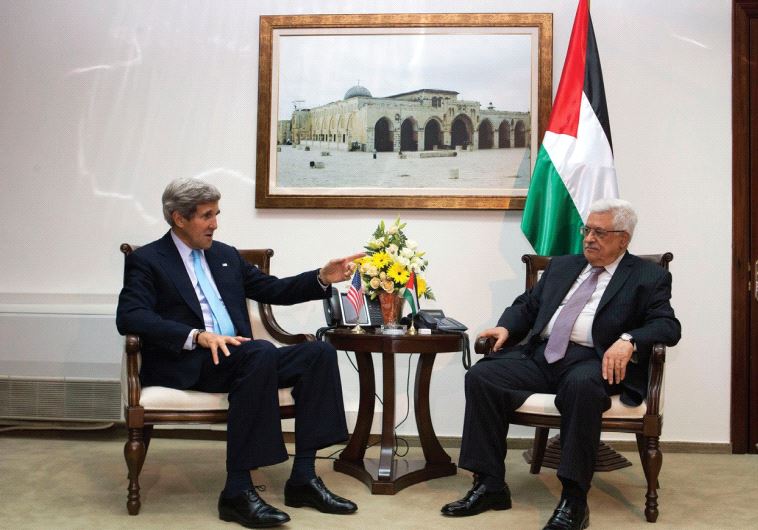UN vote and Kerry speech will impede prospects for peace
Responsible leaders on both sides should collaborate to dial down the rhetoric and prevent Israel from becoming a political football.
 US SECRETARY of State John Kerry meets Palestinian Authority President Mahmoud Abbas in Ramallah in 2013.
US SECRETARY of State John Kerry meets Palestinian Authority President Mahmoud Abbas in Ramallah in 2013.